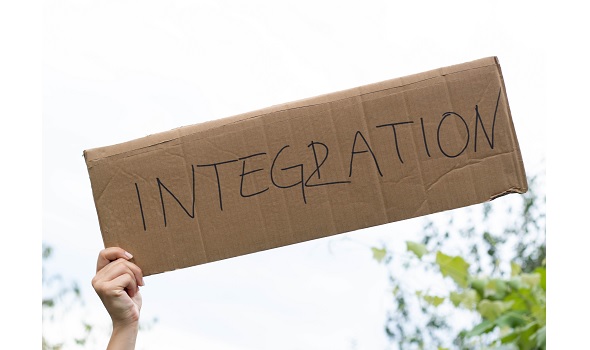Editorial: A step towards integration
Editorial: A step towards integration

A Home Office document on integration published on 3 June has provided some welcome and unexpected hope for us and for newcomers to this country.
The “Indicators of Integration framework 2019” outlines the factors involved in “successful integration”, what good integration looks like and how (if at all) it can be measured. Its tone and main messages are welcome – it’s about time that we focus on how integration is everyone’s responsibility and isn’t at all about assimilation or the loss of migrants’ identities.
There are also several pages of good advice on how local and national communities and institutions can help create diverse, cohesive communities – we urge anyone involved in local or national government or community work to read this document, and we urge the government to back up these recommendations with the funding that can make them a reality.
During our recent video-making project on integration called Feel at Home, participants – both migrants and non-migrants – voiced their concerns and hopes about integration.
We’re pleased to see many of these thoughts echoed in the new Home Office guidelines, including the idea that integration is not just a one-way process.
“It’s a two-way exchange, a two-way acceptance,” one Feel at Home participant said. “I agree you have to adapt, but I don’t agree you have to lose your identity in that process.”
“I think integration is when the migrant’s ways, the food that they eat and the music that they play and the airtime that they get on TV, it’s accepted – that’s integration to me,” said a second person.
The Home Office document opens with a foreword by Immigration Minister Caroline Nokes MP, where there are positive signs about the chapters ahead, including the acknowledgement that the guidelines were produced in collaboration with a number of different groups, including, "most importantly, migrants themselves".
- “For generations, people from across the world have come here to start new lives, and their presence has made the UK an immeasurably richer and more diverse place,” she writes later.
- “Our hope is for this framework to help those who choose to make this country their home to unlock their own potential and realise every opportunity the United Kingdom has to offer them,” Nokes continues.
It’s good to hear these words – we and others have long seen the goal of integration as not to subdue the “differentness” of newcomers in an attempt to appease locals, but to empower them and enrich the society in which they live. But the rhetoric must be backed up with action.
It’s also good to see a recognition throughout the document that there is no single or universal measure of integration, that it’s a complex, multi-layered process that works differently in every context, that “social bonds” between newcomers with a shared background is also a key part of integration, that equal access to work, education, healthcare, and public services are vital, and that integration requires “adaptation and change by all those involved without undermining their original identity”.
The report also addresses barriers to integration, offering a welcome acknowledgement that migrants can struggle to find work as their foreign qualifications aren’t recognised, that young migrants may struggle to catch up due to missed schooling, and that a lack of available housing may force migrants to move away from their social networks.
But there are barriers that aren’t mentioned. One Feel at Home participant explained that she sees the very concept of integration, and the use of that word, as a barrier. She wants to see a different focus entirely.
“Maybe we should more often speak about equality, access to rights and social cohesion, that would include all in the integration process,” she said. “That means people from the local (community) and the migrants.”
There are plenty of other barriers too – from disproportionate, discriminatory visa fees that leave many migrants priced out of full access to British society and a hostile environment that casts suspicion on those who look “different”, to anti-migrant rhetoric from too many politicians, whose scapegoating of immigrants is all too often amplified by the British media.
Coming from a Home Office whose messages on migration have been consistently negative, this document represents a welcome, if small, shift in the right direction. This government must now make the funding and resources available to implement the strategies outlined in the document, and ensure that this new positive approach takes root and inspires fundamental reform in UK immigration policy.
TOP IMAGE: Integration, Marco Verch Professional Photographer and Speaker, Flickr (CC BY 2.0)


